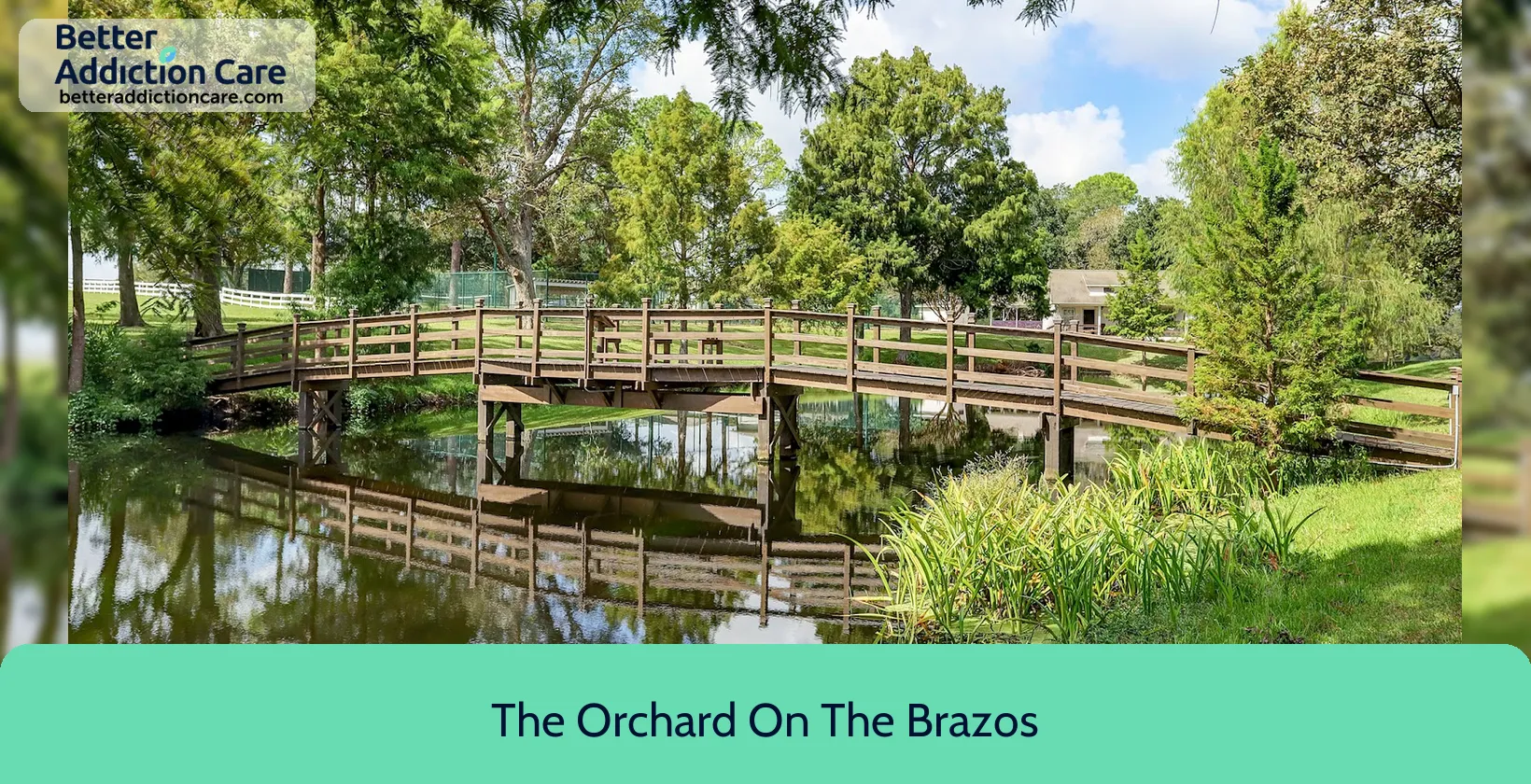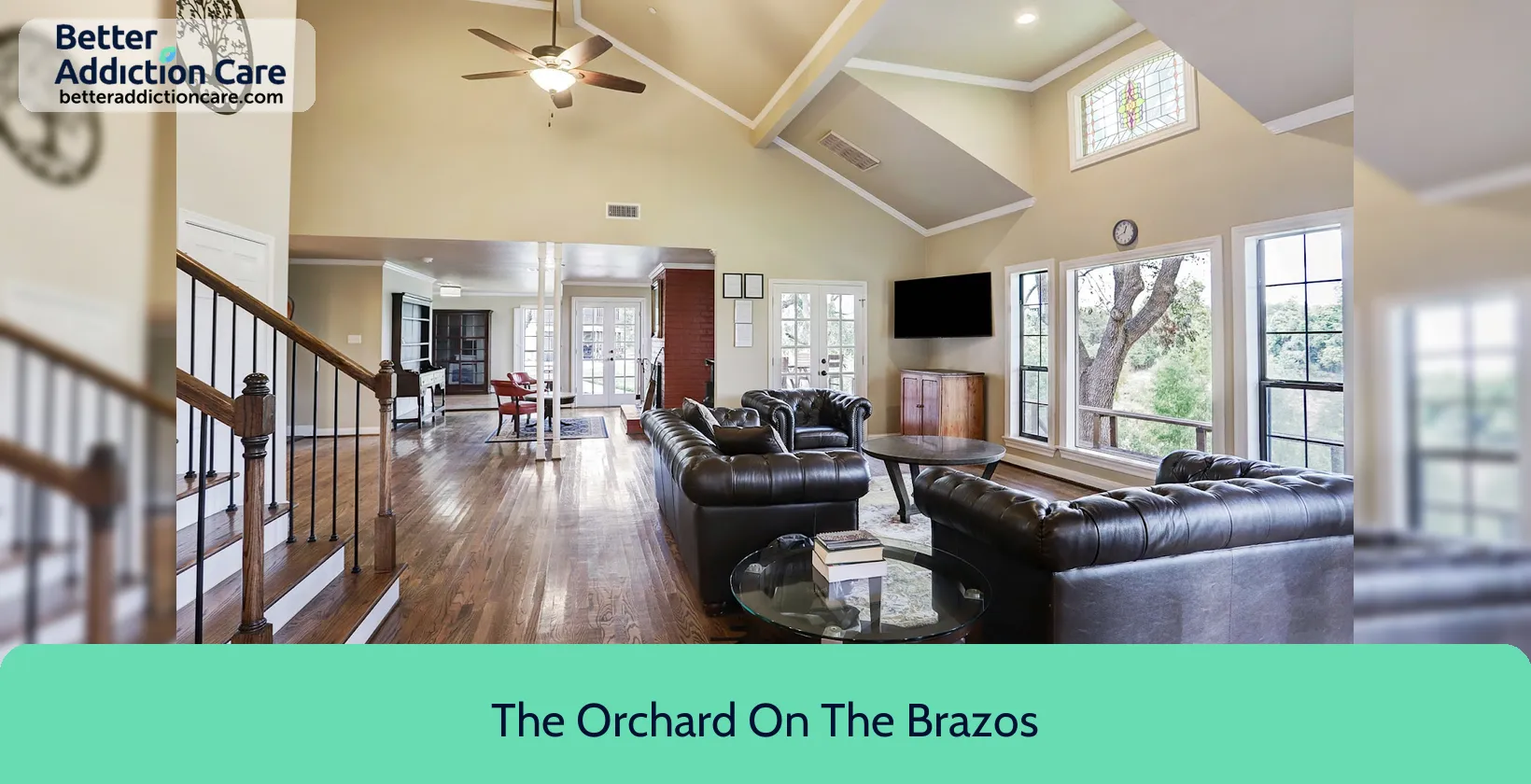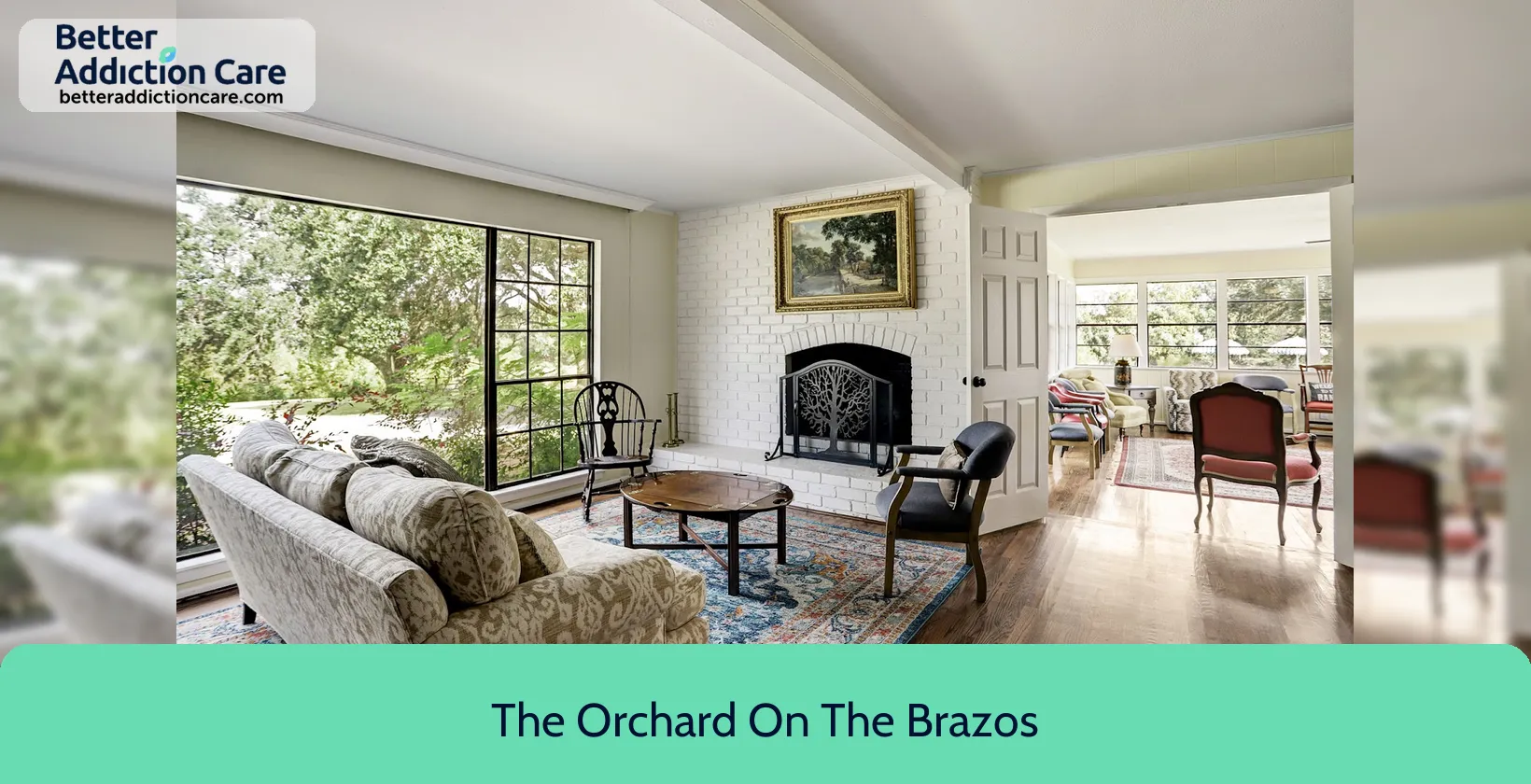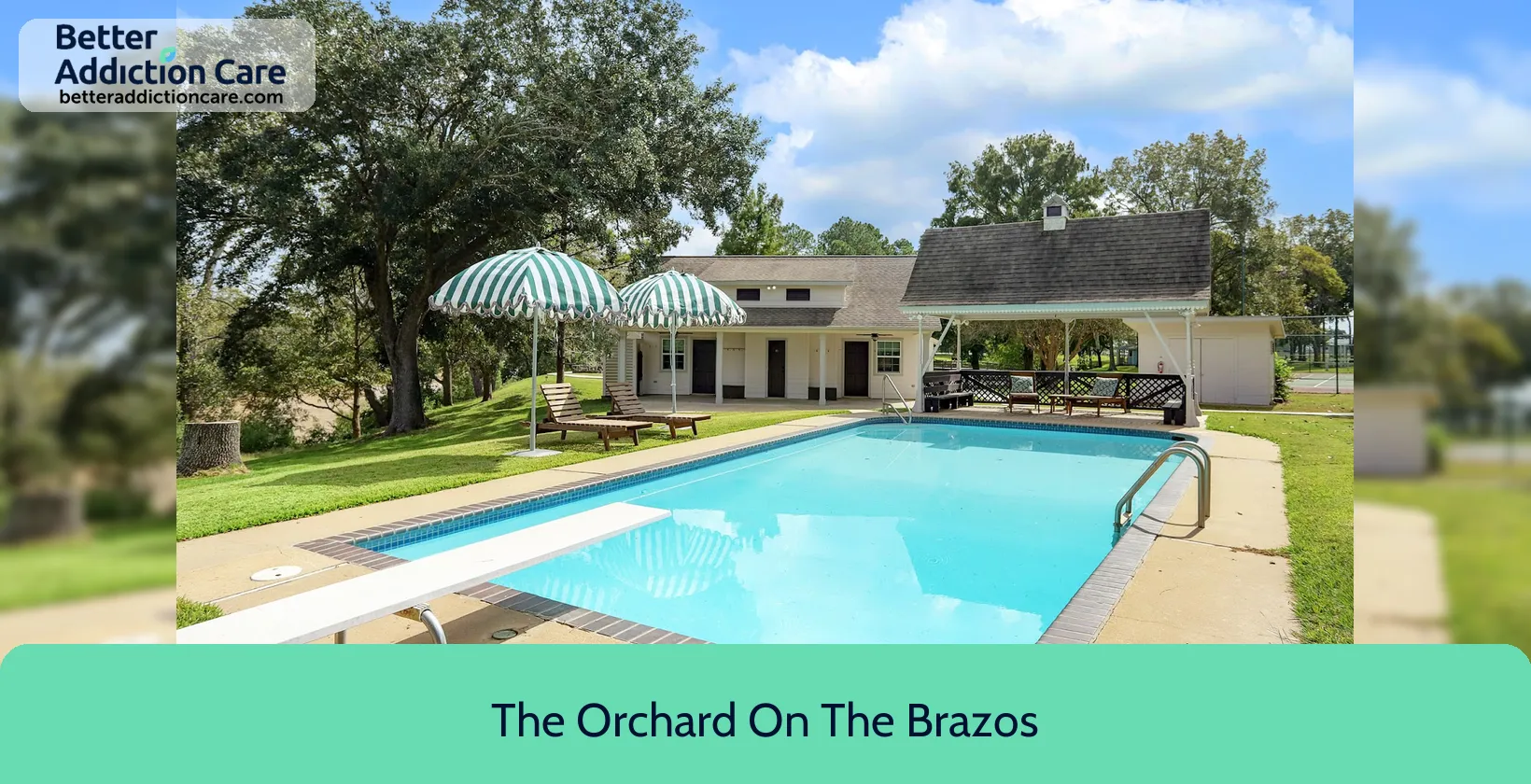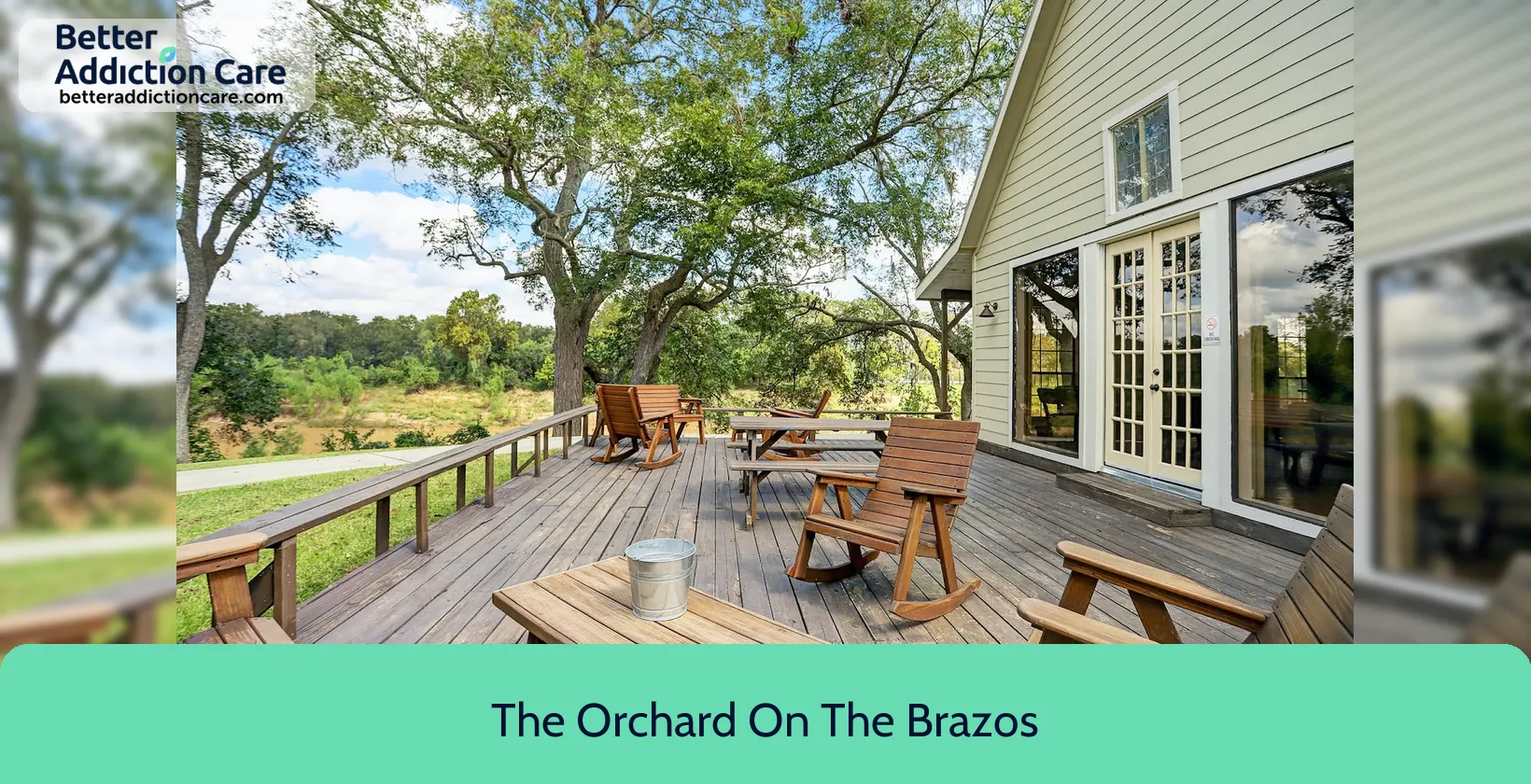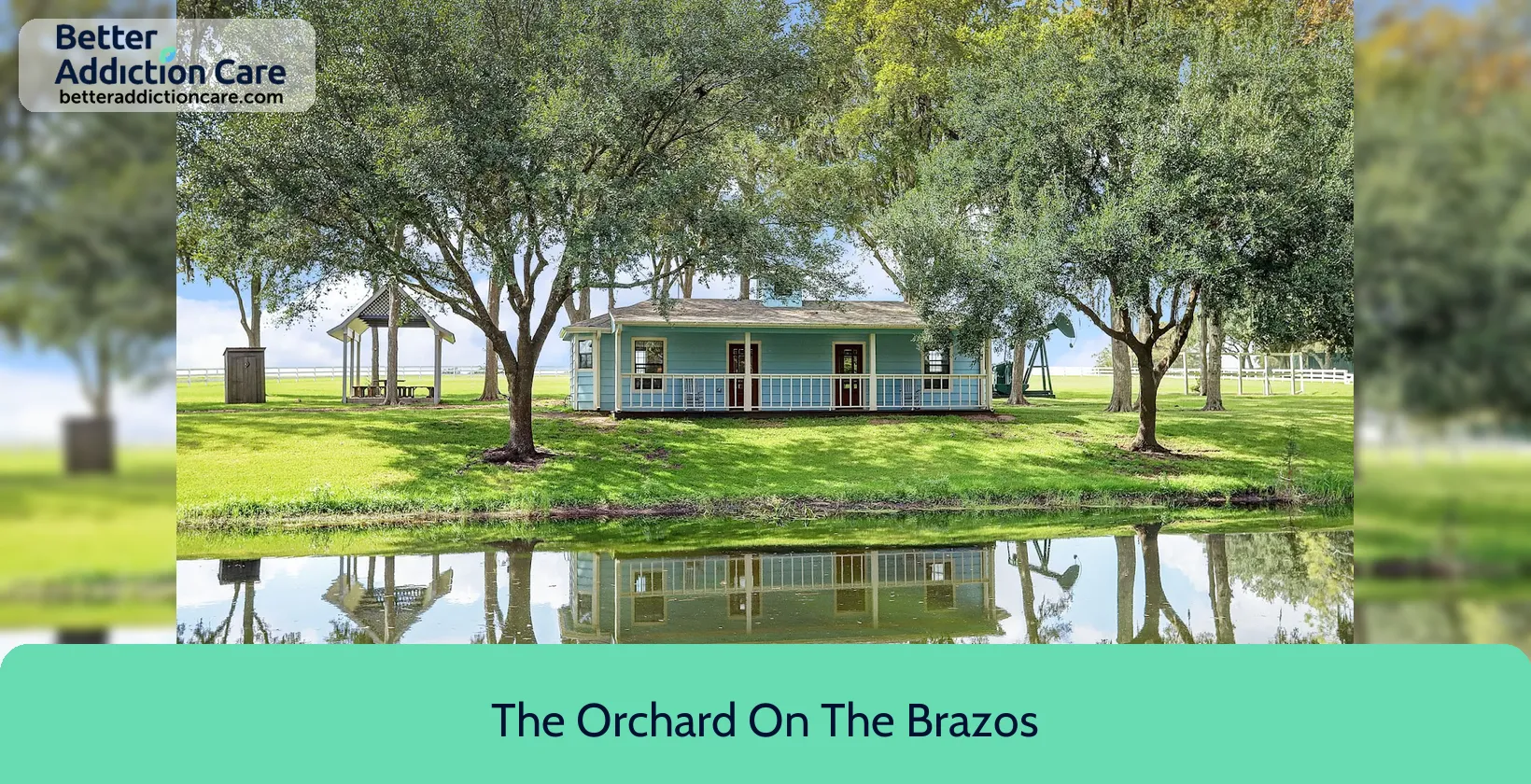The Orchard On The Brazos Recovery
Overview
The Orchard On The Brazos Recovery, located in Wallis, Texas, offers comprehensive treatment for substance use disorder and alcohol addiction. Each individual at the facility receives a personalized approach based on the Three Pillar Approach—Recover, Explore, Live—and the 12-step model. The facility provides various programs, including detox, residential treatment, partial hospitalization, intensive outpatient, and extended care.
During the detox program, residents are closely monitored by healthcare professionals and may receive medication to manage withdrawal symptoms. In the residential program, residents receive continuous support from staff and participate in various treatment modalities, including individual and group therapy. The extended care program also incorporates 12-step meetings, yoga, and career counseling, ensuring a holistic approach to recovery. Additionally, The Orchard On The Brazos Recovery offers an aftercare program to support long-term sobriety.
The Orchard On The Brazos Recovery at a Glance
Payment Options
- Medicare
- Medicaid
- Cash or self-payment
- Private health insurance
Assessments
- Comprehensive mental health assessment
- Comprehensive substance use assessment
Age Groups
- Adults
- Seniors
- Young adults
Operation
- Private for-profit organization
Accreditations
The Joint Commission:

The Joint Commission's addiction and behavioral health accreditation signifies a facility's commitment to high-quality care. It involves rigorous evaluations and assessments of clinical practices, ensuring effective, evidence-based treatment. Accreditation showcases a dedication to continuous improvement and patient safety, instilling trust among patients, families, and healthcare professionals. It's a mark of excellence in addiction and behavioral health care.
Treatment At The Orchard On The Brazos Recovery
Treatment Conditions
- Mental health treatment
- Substance use treatment
- Co-occurring Disorders
- Alcoholism
- Opioid Treatement
Care Levels
- Luxury Treatment
- Outpatient
- Hospital inpatient treatment
Treatment Modalities
- Group counseling
- Family counseling
- Equine Therapy
- 12-step facilitation
Contact Information
Read our Most Recent Article About Drug Addiction
DISCLAIMER: The facility name, logo and brand are the property and registered trademarks of The Orchard On The Brazos Recovery, and are being used for identification and informational purposes only. Use of these names, logos and brands shall not imply endorsement. BetterAddictionCare.com is not affiliated with or sponsored by The Orchard On The Brazos Recovery.
Your Addiction Doesn't Have To Define Who You Are.
You deserve high-quality treatment and a fulfilling life in recovery.
By calling us, you agree to our Terms & Conditions
